Epidemiology research in cerebral palsy (CP) uses large population data, such as CP Registers, to better understand the causes of CP, identify new avenues for prevention, and monitor trends in the rate and severity over time. This helps us to identify if treatments and prevention strategies are making a meaningful difference for a whole population.
CPA oversees the world’s largest and most extensive national CP register, the Australian CP Register. Our team is committed to harnessing the power of big data and actively supports CP Registers in over 20 countries.
Our epidemiology program also conducts ground-breaking research into the causes of CP, including the role of genetics, congenital anomalies and preventable viral infections such as CMV.
Epidemiology research can change the future of CP through:
Analysing large data sets allows for reporting of trends of CP over time. Enhancing understanding of how CP affects people across a whole population, can help identify gaps in health services and medical research which need to be addressed.
Our current research focuses on several priority groups to ensure that no one is left behind. These include people living with significant support needs, Aboriginal and Torres Strait Islander people, overseas-born children, and those living in regional/remote areas.
We are also investigating CP in babies born extremely early (preterm), CP following Assisted Reproductive Technology, and CP caused by events after the newborn period (post-neonatal CP).
A key focus across all our work is promoting fair and equitable access to health services for every person affected by CP.
CP has many possible causes and often results from complex multi-factorial pathways. Mapping these pathways enable identification of opportunities to prevent CP and reduce its severity. This body of work involves understanding the interplay of risk factors for CP such as genomics, congenital anomalies, perinatal infections, preterm birth, and newborn brain injury.
Genomics
We investigate the genetic causes of CP, with a strong commitment to partnering with people with lived experience throughout every phase of the research cycle. Our work includes collecting, storing and analysing genetic and clinical data. We are also developing ways to share and store this data securely – to enable collaboration with local, national and international partners. It is our hope this will accelerate discovery and maximise impact.
Our Community Reference Group for CP Genomics have identified three initial priorities:
1. Curating CP genetics health information for families to access online
2. Regular research updates for families and people with CP
3. Advocating for people with CP to access genetic testing
Cytomegalovirus (CMV)
Cytomegalovirus (CMV) is a common herpes virus which spreads through person-to-person contact with saliva, urine, tears, nasal mucus and intimate contact. Infected infants and young children, who may otherwise remain well, can easily pass this virus on to others.
If a pregnant woman is infected with CMV, there is a risk that her unborn baby will also become infected. This is called congenital CMV (cCMV). While most babies born with cCMV remain well, it can cause injury to the baby’s developing brain. In Australia, over 400 babies are born each year with a life-long disability caused by CMV. There is currently no vaccine to prevent CMV. The best way to reduce the risk of CMV infection in pregnancy is by maintaining good hygiene practices. Hygiene precautions are recommended for anyone who is pregnant or planning a pregnancy. These precautions are particularly important for those who work with or care for young children.
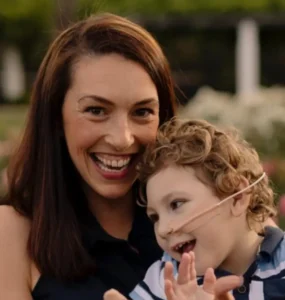
In collaboration with people with lived experience, clinicians and researchers from across Australia, we are working to build awareness about CMV. This includes strategies that can reduce the risk of CMV infection in pregnancy and reduce the severity of disability amongst children born with congenital CMV. This work is also supported by Congenital CMV Disability Prevention Network.
People with lived experience of cerebral palsy (CP) are at the centre of everything we do. Our work is guided by the research questions that are important to them, through priority setting studies, input from CP Quest, advisory and reference groups, and research partnerships with individuals and families living with CP.
We are currently leading two major research initiatives:
Project 1: Global CP Research Agenda
We are synthesising research priorities from people with lived experience of CP around the world. This global effort will shape the CP research agenda for the next decade, ensuring that future research is meaningful, impactful, and responsive to the needs of the CP community.
Project 2: Congenital Cytomegalovirus (CMV) Research Priorities
We are identifying the most pressing research priorities for the prevention and management of congenital CMV. This collaborative work is informed by lived experience and aims to focus CMV research on the areas that will have the greatest impact for children and families.
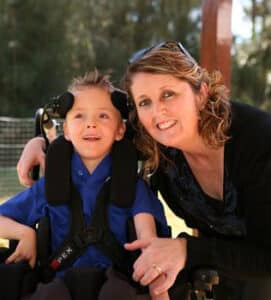
The CPA Epidemiology team are piecing together the causes, prevalence and trends of cerebral palsy – to make every person’s story visible.
Published the first study in the world that identified the research priorities of people with lived experience of CP. Prevention was the number 1 priority identified by families.
We lead the Australian Cerebral Palsy Register (ACPR) – the largest national CP Register in the world.
In 2018 the ACPR identified a 40% reduction in the prevalence of CP in Australia over a generation – from 1 in 400 to 1 in 700 children, this decline has been reported here.
The first systematic analysis on the global prevalence of CP. This highlighted declines in rates in high income countries, but disparities across the world.
Supporting CP Registers in low-and middle-income countries (LMIC), such as Bangladesh, Sri Lanka and Vietnam. Visit Global LMIC Cerebral Palsy Register.
Established the International Cerebral Palsy Genomics Consortium (ICPGC).
Congenital anomalies identified in 1 in 4 children in the largest congenital anomalies/CP study in the world.
Collaborated to understand the ‘real world’ use of magnesium sulphate to prevent CP for babies born extremely preterm.
Established the Australasian congenital CMV Register (ACMVR) to explain the long-term outcomes for children with congenital CMV – a risk factor for 10% of children with CP.

Help transform lives by supporting cerebral palsy research. Your donation brings hope and progress for babies, children and adults with cerebral palsy, and their families.


Sarah leads the Epidemiology theme and is involved in strategic planning for the Research Institute. She works with teams on CP Registers across the globe identifying: rates and trends, aetiology, prevention strategies and equitable access to health and disability services.
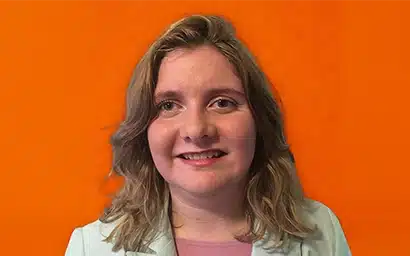
Natasha is passionate about reducing the rate and severity of CP through cutting-edge intervention and treatment, and champions authentic consumer involvement in research. She was diagnosed with CP at 12 months and has been an advocate for the Cerebral Palsy Alliance Research Foundation since childhood.
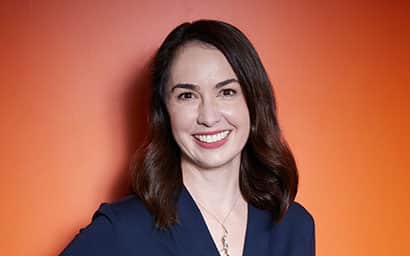
Shona’s role involves leadership and collaboration on population-based epidemiological research, focussing on the aetiology and prevention of CP. She is also the Research Co-Lead of CP Quest, our partnership between people with lived experience and researchers, and leads the NSW/ACT CP Register.

Georgina works on the NSW/ACT CP Register and is involved in research priority setting. She collaborates with people with lived experience of CP and clinicians to better understand families’ perspectives, opportunities for severity reduction and prevention of CP.

Tasneem works on the NSW/ACT CP Register and collaborates on international public health projects. Her research focus includes aetiology, prevention, and early detection of CP, especially in low-and middle-income countries.

Sophie oversees a group of research partners with lived experience of CP. This includes coordinating their involvement in research, development of resources and supporting this community.
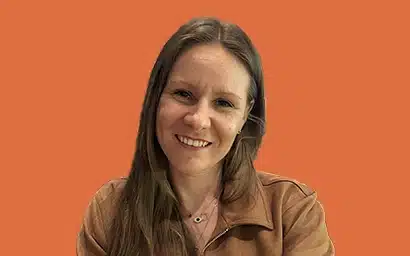
Natalie supports and liaises with families involved in genomic research studies. Her primary role is to investigate the genetic causes of CP and other neurodevelopmental disorders.
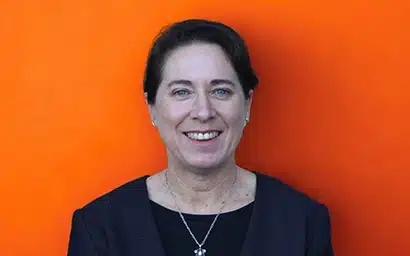
Hayley leads and manages epidemiology and public health research studies to identify trends in CP and opportunities to reduce the prevalence and severity of disability.
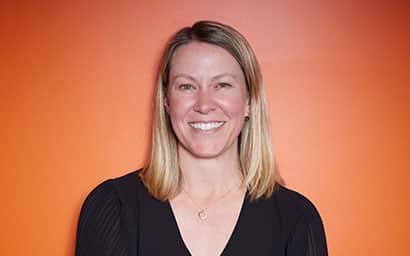
Kath’s role includes collaborating on research projects with a focus on CP and CMV. Kath is also a Research Co-Lead of CP Quest, our partnership between people with lived experience.

Emma works on the Australian CP Register and Australasian Congenital CMV Register. Her research investigates trends in prevalence and aetiological risk factors of CP to identify prevention opportunities and priority populations.
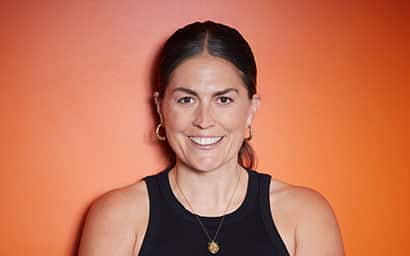
Yana’s research investigates the genomic causes of CP and other neurodevelopmental disorders, as well as harmonization and management of genomics data assets. She is passionate about the involvement of people with lived experience in her research and ethical sharing of participant data to drive discovery.
Information and e-learning for families, health professionals and the community
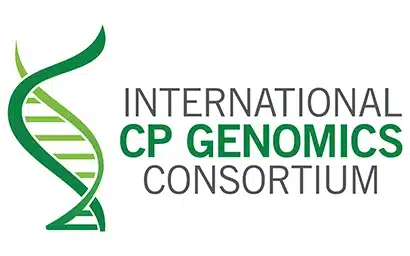
Presentations and lay summaries of cerebral palsy genetics research papers.
An educational video series demystifying what cerebral palsy is
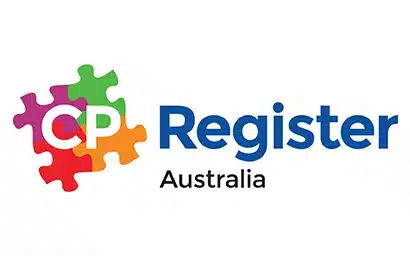
Uniting data to drive research and shape better futures for people with cerebral palsy
For more information, please subscribe to one of our newsletters: